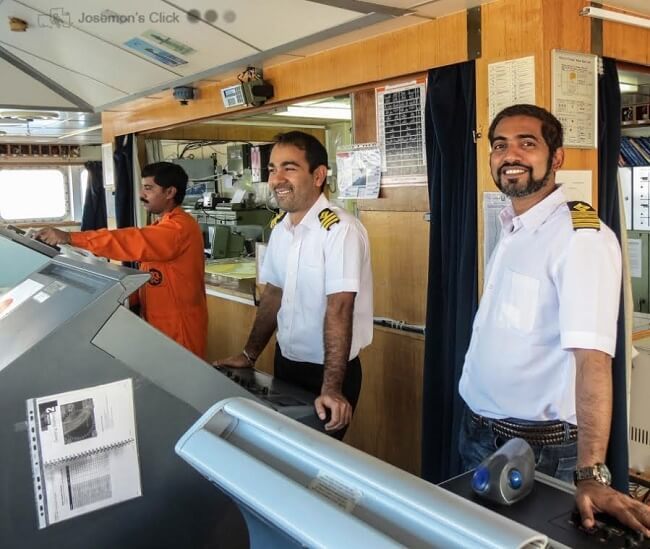Some More On SIP, STP, And Bulk Purchase
Two years ago I had written an article, laying out the comparative advantages of STP Vis-a -vis SIP. I had tried to explain why STP works better for the Marine Professional rather than SIP. The Mutual Fund industry has gone so much overboard in repeating the word SIP that people have come to think of SIP as a product rather than a method of investing in Mutual investing.
However, as long as methodical investing goes Mutual Funds are unparalleled in any country including Philippines, Sri Lanka, Singapore, Hong Kong and even Russia, the only limiting factor being their political conditions. As long as a Marine Professional is investing regularly after selecting the right fund, he can actually fine tune his strategy to get the best out of assets.
I will again attempt to unravel, demystify and simplify the above three methods.
Bulk Investing: This is simple. When you buy for an appreciably large amount like $1000 and above one time thinking that the market conditions are correct in your perspective, it is called bulk investing. This may happen once in a while or irregular intervals.
SIP or Systematic Investment Plan: It is an automated system when an amount determined by you is automatically transferred from your bank account to the Fund that you have selected to invest. In this paperwork is done through the fund house who sends the information for confirmation to your bank and the process can take up to one month to start. This more often than not takes place once a month.
STP or Systematic Transfer Plan: It is another method where a fixed sum is shifted or transferred from one fund (you can call it source fund or S-Fund) to another ( call it Destination or D-fund).For our purpose of primary investing, this takes place mostly from a debt fund to an equity fund. STP cab any frequency Monthly, weekly and even daily.
Now let me point out a few points regarding inherent advantages of STP:
1. For Seafarers, the main issue is the irregular availability of funds. Even for the six months of work due to the uncertainty of joining and signing off, he remains uncertain in investing.
Hence allocating funds to SIP becomes difficult because one has to make a large outlay in the NRE account. Instead, s(he) gets inclined to make lump sum investments.
2. With STP he is secure in the knowledge that if the liquid fund runs out he need not worry as there is no liability. Additionally, the funds in the Debt fund which is the S-Fund are for his use whenever S(he) wants.
3. Cancellation of STP takes 3 minutes online whereas SIP cancellation can take more than 2 months.
4. With STP, apart from the equity funds even the debt fund ( which is your source fund) is earning and appreciating. If you check immediate past 2-year performance equity and debt funds have performed similarly. This may be an aberration but a fact nonetheless.
5. With SIP one’s money in NRE savings of fixed is almost lying idle and depleting with inflation.
6. With our kind of salaries the amount that one needs to invest per month, for productivity gains, one has to invest a large amount per month.
If you put that in 1 SIP per fund, from my point of view it is as good as a bulk purchase.
7. Now consider a single SIP off ₹50,000 split into 5 STPs per week. And you have truly diversified your risk. Plus the amount that was in the debt funds in between these 5 STP dates also continues to appreciate at a higher rate than in a bank account.
Last week’s fall of 5% and the NAVs at which the last 2 STPs were booked will prove my point.
8. With the weekly STPs, one is more in touch with reality and any fall in the market like the last week’s, it will give you an opportunity to put in an extra lump sum to extract more out of the situation by switching about 5 to 10% into your equity funds.
9. A single monthly SIP would have deprived you of the situational opportunity.
10. Last but not the least when you are on board switching from one fund to another will take much less time than making a fresh purchase from your bank account.
A lot of advisors do not go into sufficient depth and explain to the investor that a falling market provides you with an opportunity like a time machine- to go back into time and invest at a level which was much into the past. Hence a person who is earning and earning like the Marine Professional does, can actually go back into time and invest at a level which was when he did not have that money.
SIP is a good strategy for a modest salaried investor who never has a large chunk of money except when he gets a bonus. Its effect on wealth generation for a seafarer reduces when coupled with the money lying idle in the bank account.
I cannot but repeat and repeat, that try and automate your method of investing by utilizing the tools. Mutual Funds provide with immense flexibility and convenience. You just have to use the tools to form a long ranging plan and portfolio and then keep investing and increasing that investment amount as you progress through to the Captain or Chief Engineer’s rank. The first step is the most important to take since I have found that people drag their feet over selecting their first fund for years together losing out on opportunity every day.
You may also like to read – The Financially Illiterate Mariner – Are You One Of Them?
Disclaimer: The views mentioned above are of the author only. Data and charts, if used, in the article have been sourced from available information and have not been authenticated by any statutory authority. The author and Marine Insight do not claim it to be accurate nor accept any responsibility for the same. The views constitute only the opinions and do not constitute any guidelines or recommendation on any course of action to be followed by the reader.
The article or images cannot be reproduced, copied, shared or used in any form without the permission of the author and Marine Insight.
Latest Financial Planning You Would Like:
Do you have info to share with us ? Suggest a correction
Related Posts
Subscribe To Our Newsletters
By subscribing, you agree to our Privacy Policy and may receive occasional deal communications; you can unsubscribe anytime.
Web Stories

About Author
Rajeeve has been a Chief Engineer for 19 years. He kept his deadline and retired himself on his 50th birthday. With a penchant for reading and writing serious literature and driving long distances, his main hobby is observing and commenting on the economy of the country. He has been helping colleagues at sea by planning their finances and future for over 20 years now. Living in the rapidly diminishing Himalayas, he appreciates every aspect of his beloved country, lying between the Green Hills and the Blue Ocean.



























